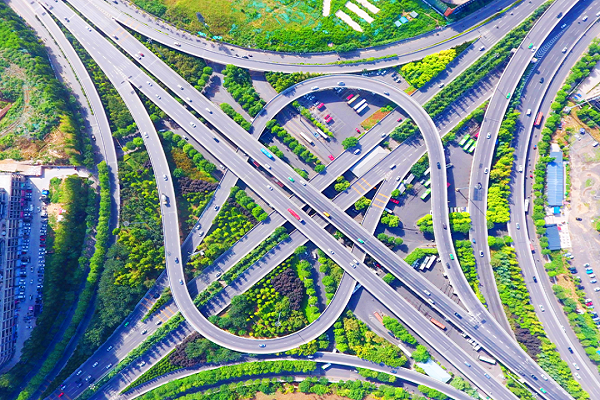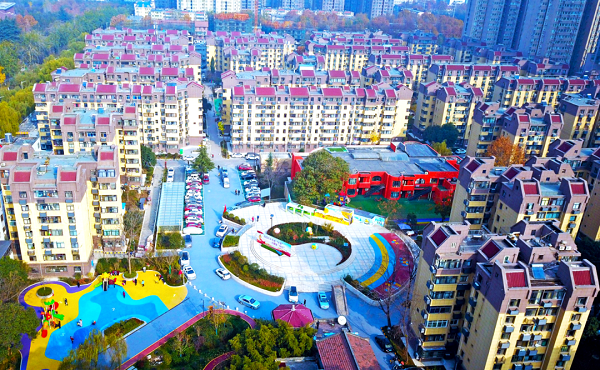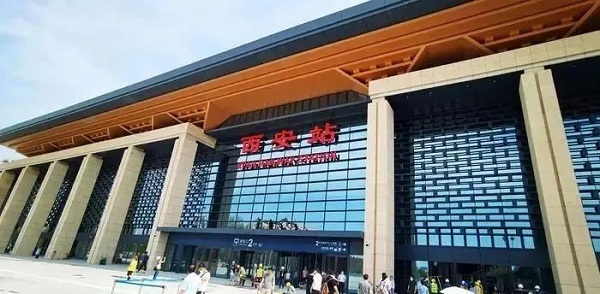
The urban traffic system in Xi'an develops rapidly. [Photo/Xi'an municipal government's WeChat account]
Over the past decade, the city of Xi'an – capital of Northwest China's Shaanxi province – is widely viewed as having improved the living conditions of its residents hugely, as it has succeeded in advancing its overall urban construction.
During the past five years, the city has renovated 2,008 old communities and 599 back streets and alleys, as well as unblocked 144 dead-end roads.
As of May this year, a total of 293 elevators had been installed in the renovation of old residential areas in the city during the decade, with a cumulative subsidy of 43.95 million yuan ($6.12 million). Some 362 old residential areas had been renovated and are now operating with professional property management.
In addition, WeChat app Xi'an Urban Management Map has been launched, allowing the public to experience the new life of the smart city.

Xi'an renovates its old communities. [Photo/Xi'an municipal government's WeChat account]
Xi'an fully manages the Xixian New Area and important progress is understood to have been made in the integration of Xi'an and nearby Xianyang city.
Construction of the third phase of Xi'an Xianyang International Airport has started. This will mean that the airport will be able to handle 83 million passengers, 1 million metric tons of cargo and mail and 595,000 aircraft takeoffs and landings in 2030. Plans are for the work to be completed in December 2025.
As one of the eight major railway hubs in the country, the Xi'an Railway Station has also been renovated and expanded.

The Xi'an Railway Station is one of the eight major railway hubs in the country. [Photo/Xi'an municipal government's WeChat account]
The annual passenger volume of the station is expected to reach 48 million and the transportation capacity has been increased by 2.4 times.
In addition, Xi'an has built six urban expressways, 11 large-scale interchanges and five bridges and two tunnels across the Chanba River in the course of the period. This has not only allowed people to enjoy the convenience of fast travel, but also accelerated the construction of Xi'an as a national central city.
Furthermore, the length of the metro rail in use in the city has reached 259 kilometers, with 163 km of track now under construction – 2.8 times and 1.4 times that in 2016, respectively.